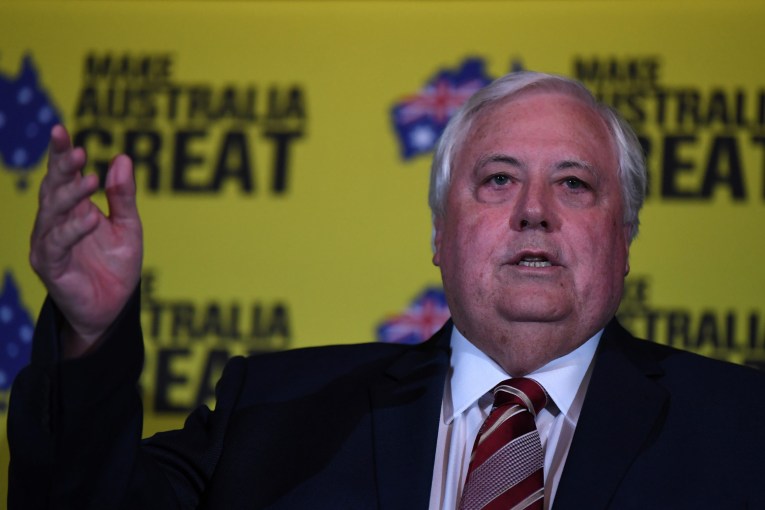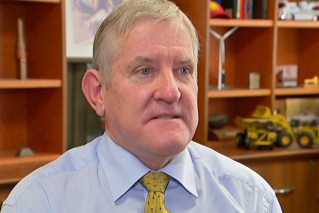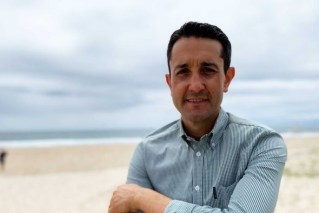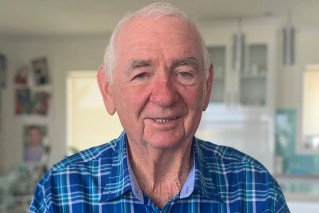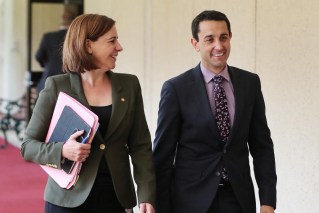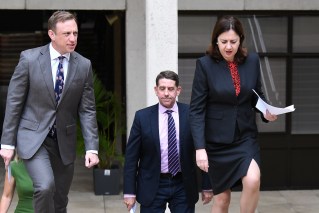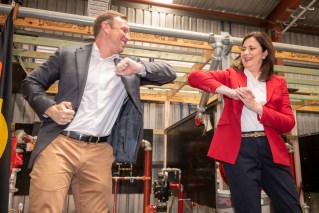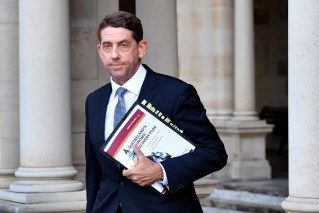$100,000 question: Who will pocket biggest pay rise when election is over?
For frontbenchers, there’s a big pay difference between opposition and government. Here are the main contenders on both sides.
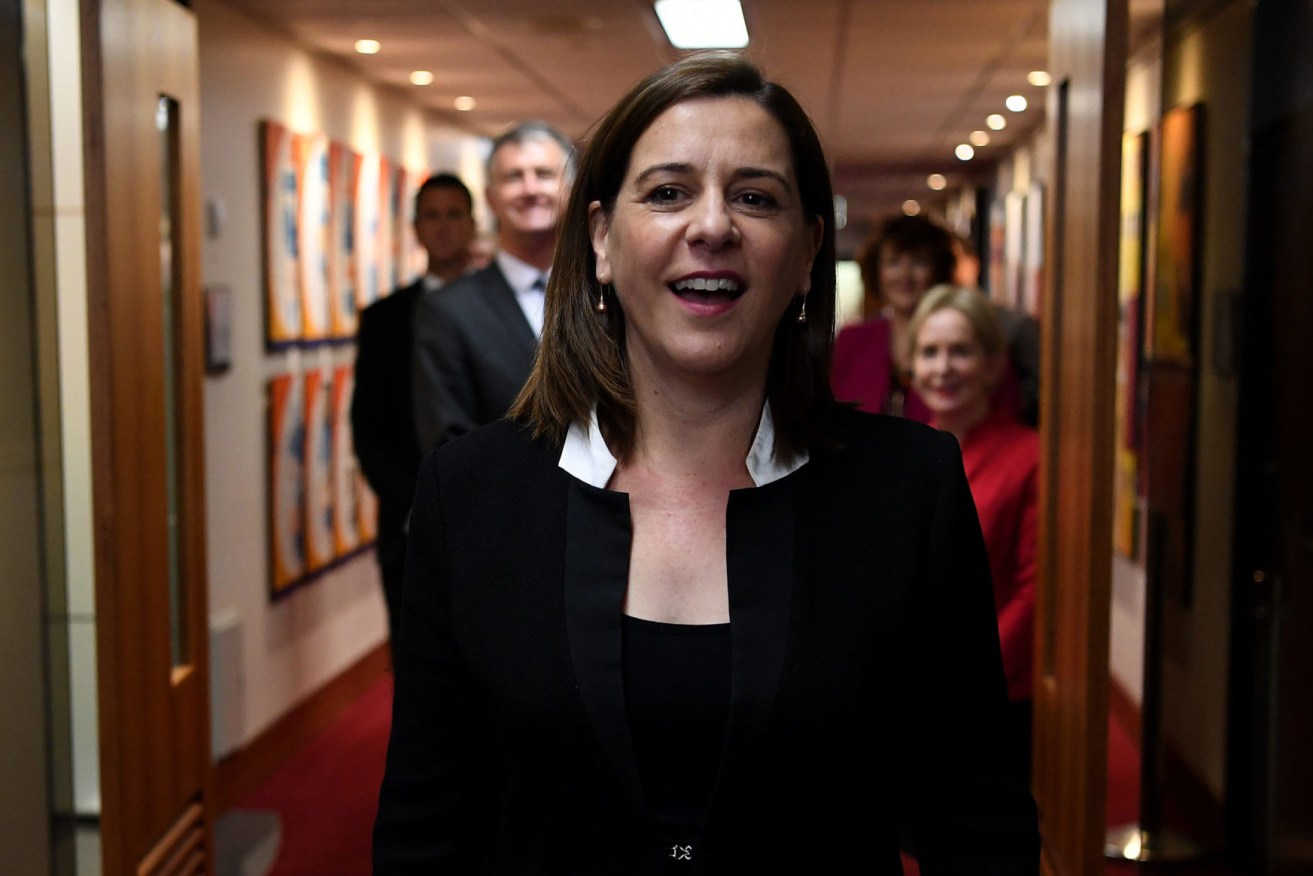
LNP leader Deb Frecklington (centre) with treasury spokesman Tim Mander (left) and Ros Bates (right). (Photo: AAP Image/Dan Peled)
The base salary for a Queensland MP is $159,122, well above the state average, and not including various allowances and entitlements. It is set by the Remuneration Tribunal, and does not take into account education or experience.
For taking on extra duties, MPs are paid more, and the difference between the government and opposition front bench can be up to $108,000, adding another dimension to the major party contest between Labor and the Liberal National Party.
There are normally 18 or 19 Cabinet positions on offer. Labor goes into the election with three retiring ministers, most notably Kate Jones, who would need to be replaced if Labor won another term. Promoting a backbencher into Cabinet would give them a $168,583 pay rise.
The LNP front bench remains largely intact, for now, but, like Labor, the composition would depend on the MPs being able to retain their seat. Voters need to make a decision on their local MP, to contribute to a state-wide verdict on the ruling party, that will then provide a judgment on the personnel expected to guide Queensland through the next four years. For Labor, there would also be factional considerations, and both sides have criteria for deciding the portfolio distribution, which could also come into play during any minority government negotiations.
As expected, the highest-paid politician in Queensland is the Premier, on a $399,955 base salary. Throughout the pandemic and recession, the Premier has had even more control than usual, and also more responsibility, albeit acting on the advice of the Chief Health Officer for COVID-19 matters.
The incumbent, Labor’s Annastacia Palaszczuk, has held the top job since 2015, following a defining period as Opposition leader in the Newman government era.
Palaszczuk, a former ministerial adviser with arts and law degrees, had her first Cabinet experience in the Beattie government and has previously held the transport, multicultural affairs and disability services portfolios. She has been in parliament since 2006 and is the daughter of former Labor government minister Henry Palaszczuk.
The contender, Deb Frecklington from the LNP, is currently paid a $327,705 base salary as Opposition Leader. She was elected as the Newman government took power in 2012, initially gaining experience in assistant minister roles.
Frecklington, who has business and law degrees, previously worked as a solicitor and in advertising sales and property management. She is the first female leader of the LNP and, unlike her predecessor or Palaszczuk, has a regional seat.
Ministers are paid $327, 705 – their shadows, or opposition counterparts, are paid $219,330 – and of those, the most influential is perhaps the Treasurer. Both Labor and the LNP have prioritised a budget if elected.
The current Treasurer Cameron Dick only took the role in May after the departure of Jackie Trad. However, Dick has significant Cabinet experience in state development, health, education and industrial relations portfolios, and as Attorney-General, going back to the Bligh Government.
From the Labor right, Dick is a former barrister with arts, commerce and law degrees. He was first elected in 2009 but lost his seat in the Newman years and returned via a different seat in 2012.
The LNP’s would-be treasurer is Tim Mander, who has held the opposition duties in that portfolio since 2017 against several Labor treasurers.
After being elected in 2012, Mander rose to be minister for housing and public works in the Newman government, before the LNP went into opposition after Palaszczuk led Labor back to power.
Best known as being a former rugby league referee, Mander has also been an Australia Post manager and CEO of the Scripture Union. He lists a Bachelor of Ministries on his official profile.
Mander has more authority on the LNP front bench as deputy leader, whereas Labor’s deputy leader is not the treasurer, as it was with Trad, but the Health Minister, Steven Miles.
Miles was elected to parliament in 2015, straight into the environment portfolio for the first term Palaszczuk government. He has held the health portfolio since 2017 and been deputy leader since May, reflecting his role in the Left faction and responsibilities throughout the pandemic.
Miles is a former policy and communications adviser, and union official, and has a Bachelor of Arts and a Doctor of Philosophy. He stopped using the academic doctor title when he took on the health profile.
The LNP’s health spokeswoman is Ros Bates, a former nurse, who was elected to parliament in 2009. Bates has held a number of shadow portfolios including communities, women and youth, child safety and the prevention of domestic and family violence.
Dick also has responsibility for manufacturing, and held the state development portfolio before Jones. It is unclear who Palaszczuk would want to succeed Jones if Labor was re-elected, however it is a key role in a recession.
The LNP’s state development spokesman is Andrew Powell. Elected in 2009, Powell is a former public servant and missionary, with science and arts degrees.
